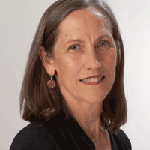President, Informed Strategies LLC
 First, tell us a bit about yourself (hometown, current locale, family, hobbies, community involvement?).
First, tell us a bit about yourself (hometown, current locale, family, hobbies, community involvement?).
I grew up in St. Petersburg, Florida before Disney World transformed the orange groves and open spaces to a vacationland with traffic and tourists. After 8 years in Atlanta, GA (the crossroads of the South) I moved to Ardmore PA in 1994 and live in a tree lined neighborhood that has 7 colleges within a 5 mile radius. I’m close to Philadelphia which is known for wonderful art including an amazing Mural Arts program on buildings throughout the city, great restaurants, and historical sites that include Constitution Hall and the Liberty Bell. Fortunately the weather here is good for hiking and being outdoors in all seasons.
Describe some of your responsibilities, and how you or your organization fit into the scholarly communications web.
As an industry consultant I have the opportunity to assess the impact of emerging trends in the landscape that affect product and organizational strategy. The Informed Strategies team is comprised of staff and associates who conduct research and analyses on the competitive environment, customer expectations and market potential. We work with a wide range of non-profit and commercial publishers, content and service providers, societies and professional organizations, providing the insights needed to answer questions and support decisions.
What career path led to your current position?
I’ve worked in all parts of the information chain, from author to consumer. I started as an academic librarian (Stetson University, Embry-Riddle Aeronautical University) which provided me with a deep understanding of the institutional customer. My second career in sales at Faxon and Thomson (now Thomson Reuters) gave me a broad view of market dynamics across the industry. During this time I earned an EMBA at Emory University. When I began consulting in 1996 the Internet had just started and companies needed to evaluate opportunities in the context of a changing environment. The rate of change has hardly slowed though the questions have continued to evolve.
Where do you see scholarly communications heading, and what new directions interest you most?
Scholarly communications requires delivering content more rapidly and with greater flexibility in the face of economic pressures and shifting business models. Mobile devices and the cloud are changing how we work by facilitating access to information in new ways that expand our ability to learn and connect. How can we make content more useful and how do we adapt digital resources for wider use and greater impact? Working with organizations to assess their information resources and define new opportunities remains the primary theme while the focus is on discoverability, business models, analytics and content innovation.
What are some of the surprises/obstacles that you’ve encountered during your career?
Given the profound impact of the Internet on the information industry the biggest challenge is the continual learning curve. While experience provides a base of intelligence about the market, looking ahead requires a fresh view of the world without the familiar framework. Working for a single organization in the print era provided a useful set of filters about what we needed to know then. Consulting today in the digital environment with many different organizations, new standards, new players, is far more dynamic—and fun.
What advice would you give to people interested in a career in scholarly communications? What new roles or opportunities do you see emerging in the field?
This is an exciting time to be involved in supporting research and requires learning new skills, creating new workflows and developing new services that support the expansion and use of knowledge. Editors are becoming product managers and need to understand how their readers will use information. Implementing new standards and creating metadata for discovery requires an understanding of the content, technical skills and applications. In an field with continuing change, be prepared to learn!
I’m a new Chef in the Scholarly Kitchen (www.scholarlykitchen.org) and more information on Informed Strategies can be found at http://informedstrategies.com/.
Profiled July 2012

